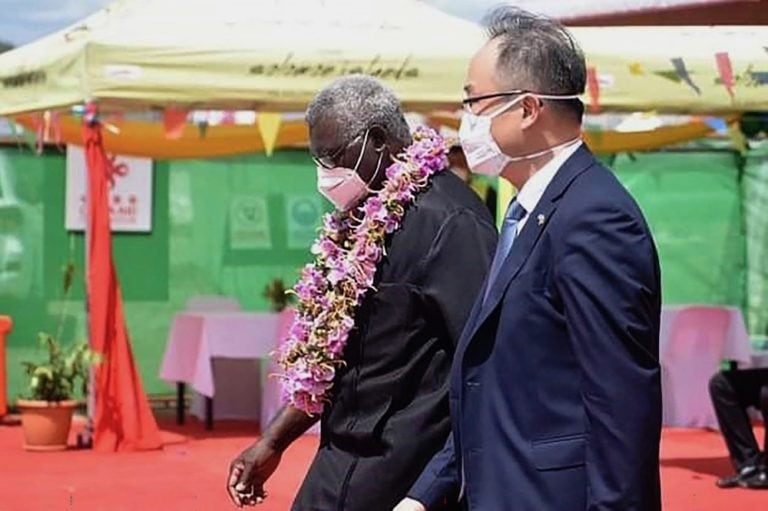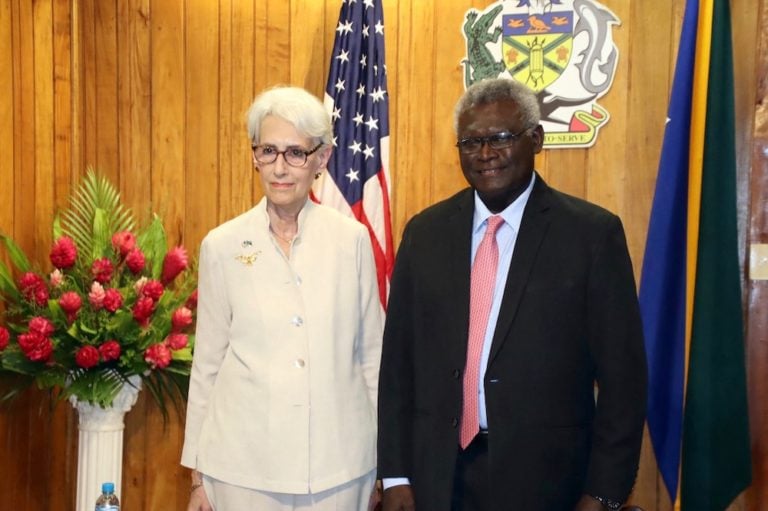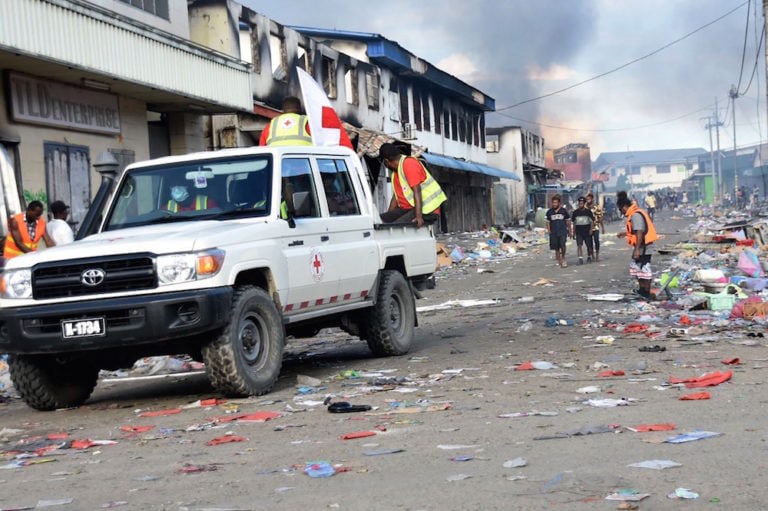(PINA/IFEX) – The daily newspaper of the Solomon Islands, the “Solomon Star”, says that state of emergency media restrictions imposed by the government are “more akin to those in former apartheid South Africa or pre-democratic Nigeria.” In an editorial on 30 June 1999, the “Solomon Star” says: **Updates IFEX alerts of 2 July, 30 June […]
(PINA/IFEX) – The daily newspaper of the Solomon Islands, the “Solomon
Star”, says that state of emergency media restrictions imposed by the
government are “more akin to those in former apartheid South Africa or
pre-democratic Nigeria.” In an editorial on 30 June 1999, the “Solomon Star”
says:
**Updates IFEX alerts of 2 July, 30 June and 3 February 1999**
“We applaud the government’s wish to discourage people from inciting tribal
unrest or violence but we take extreme exception to the curbs on press
freedom gazetted this week.
“The Emergency Powers (Island of Guadalcanal) (Amendment) Regulations 1999 –
regulations are more akin to those in former apartheid South Africa or
pre-democratic Nigeria – place far too much power in the hands of the police
and prime minister to decide what should and should not be published.
“To be sure, not all media reports of the ethnic unrest have been to the
government’s liking – some might have even been biased or unbalanced – but
Monday’s draconian regulations are unacceptable.
“An essential ingredient of a vibrant democracy is a free press; for the
state to assume the power of censorship over the reporting of ethnic unrest
is alarming to put it mildly.
“Most journalists – and Solomon Star reporters are no exception – are
acutely aware of the effect of their reporting on the ethnic unrest. To date
they have acted responsibly and with admirable restraint.
“It should not be forgotten journalists have been the messengers and not the
instigators of the troubles. Had local politicians shown similar restraint
(especially the Guadalcanal provincial government), the ethnic unrest might
not have got out of hand.
“We take the Guadalcanal premier at his word that it was never the intention
of his administration to encourage people to break the law. But loose words
and ill-timed comments certainly fanned the passions of the militants and
appeared unwittingly to give official sanction to law breaking.
“There is no suggestion the Guadalcanal government’s right to speak on
issues of the day, including ethnic concerns, will be curbed, so why are
journalists being singled out?
“The wording of the regulations comes straight from the colonial era. The
curbs do Solomon Islands’ democracy a disservice.”
Background Information
On 28 June 1999, the Solomon Islands Government introduced emergency powers
restricting media reporting amidst an ethnic conflict which has led to the
declaration of a state of emergency. Those convicted of breaching the
emergency restrictions can be jailed for up to two years and fined up to
$Solomons 5,000 (approx. US$1,035). The restrictions forbid printing,
broadcasting or communicating information which incites violence or is
likely to cause racial or communal disharmony. They also forbid printing,
broadcasting or communicating information “prejudicial” to the safety or
interests of the state, or likely to cause “disaffection” with the
government, or “hatred of contempt” for the administration of justice or
national security. The powers also restrict the printing, broadcasting or
communicating of information from official documents.
The state of emergency follows growing ethnic conflict on the island of
Guadalcanal, where Honiara, the Solomons Islands capital, is located. A
Guadalcanal militant movement is trying to drive out people who come from
another major island, Malaita. The movement is claiming that Malaitans
dominate government and business and are increasingly occupying the lands of
the Guadalcanal people. Thousands of Malaitans have fled back to Malaita
following a series of attacks by the militants. Honiara became the capital
of the then British Solomon Islands after Word War Two. It grew from a base
and port built by United States forces during the battle to retake the
Solomon Islands from the Japanese.


